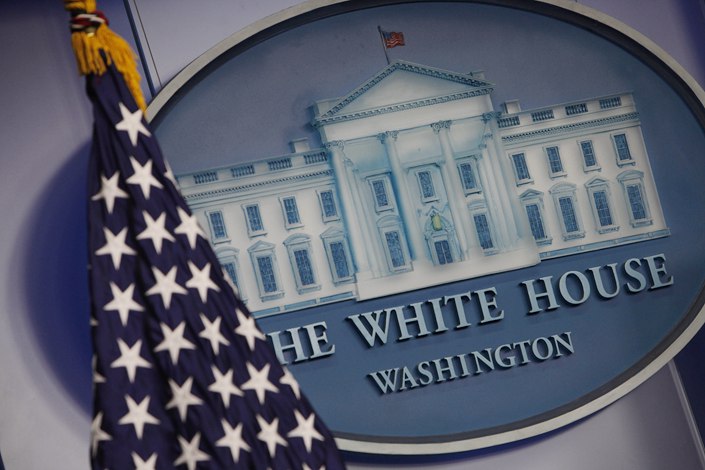Trump Joins Call for Greater Oversight of U.S.-Listed Chinese Firms

The administration of U.S. President Donald Trump is calling for recommendations on how to better protect domestic investors from U.S.-listed Chinese companies that engage in fraud, adding its voice to a growing chorus seeking tougher treatment of the group.
A presidential memo posted Thursday on the White House’s website asked the President’s Working Group on Financial Markets to come up with specific recommendations on the issue within 60 days.
“For decades, Chinese companies have availed themselves of the benefits of United States financial markets, and capital raised in the United States has helped fuel China’s rapid economic growth,” the memo said. “While China reaps advantages from American markets, however, the Chinese government has consistently prevented Chinese companies and companies with significant operations in China from abiding by the investor protections that apply to all companies listing on United States stock exchanges.”
The matter centers on the U.S. securities regulator’s ability to access third-party audits that must be performed on all U.S. listed companies.
The U.S. Securities and Exchange Commission (SEC) requires that all such audits must be accessible to its affiliated Public Company Accounting Oversight Board, or PCAOB. But China has declined to grant such access dating back to when some of its fastest-growing companies first started going to the U.S. to list around the turn of the century.
Many of those Chinese companies chose the U.S. for a number of reasons, most notably for access to global investors and to avoid a long backlog for listings in their own home market. The nearby Hong Kong market, which is also accessible to international investors, was largely off limits to many, since rules until recently prohibited companies that were losing money or had dual-class share structures used by many Chinese firms from listing in the city.
The new presidential memo asked the working group to come up with recommendations “for actions the executive branch may take to protect investors in United States financial markets from the failure of the Chinese government to allow PCAOB-registered audit firms to comply with United States securities laws and investor protections.”
It also called for advice on “actions the SEC or PCAOB should take, including inspection or enforcement actions, with respect to PCAOB-registered audit firms that fail to provide requested audit working papers or otherwise fail to comply with United States securities laws.”
The call is just the latest by U.S. politicians and regulators amid increasingly tense U.S.-China relations. SEC officials have expressed frustration in the past over their inability to access the audits of U.S.-listed Chinese firms when fraud is suspected.
Most recently, the issue came into focus in April after Starbucks challenger Luckin Coffee Inc. admitted to fabricating nearly half of its revenue in the final three quarters of last year. Just a year earlier, the company had netted more than $500 million when it listed on the Nasdaq, even though it was posting major losses at the time.
In a related vein, Reuters on Friday reported that U.S. Secretary of State Mike Pompeo said: “American investors should not be subjected to hidden and undue risks associated with companies that do not abide by the same rules as U.S. firms.” He also praised the Nasdaq, one of the two major U.S. stock exchange operators and the exchange where Luckin is traded, for making recent changes to tighten listing rules to better protect investors.
The new White House memo also comes two weeks after the U.S. Senate overwhelmingly approved legislation on the matter. The bill would ban companies from U.S. exchanges if the PCAOB isn’t able to audit them for three consecutive years to determine that they are not under the control of a foreign government.
Earlier this week, SEC Chairman Jay Clayton concurred with the need for such legislation in an interview. “This is a very sensible way to approach a problem that’s been around for a while,” Clayton said during a conference hosted by financial news and information provider Bloomberg. “This is a problem that I believe needs to be addressed and I hope it can be.”
Some of China’s biggest companies are listed in the U.S., led by names like Alibaba, which is one of the world’s most valuable companies with a market value of nearly $600 billion, as well as Pinduoduo and JD.com, which are each worth about $80 billion. But a growing tide of high-growth Chinese firms like Meituan and Xiaomi have also been going to Hong Kong to list recently, following rule changes that allow loss-making and dual share class companies to list there.
Contact reporter Yang Ge (geyang@caixin.com)







